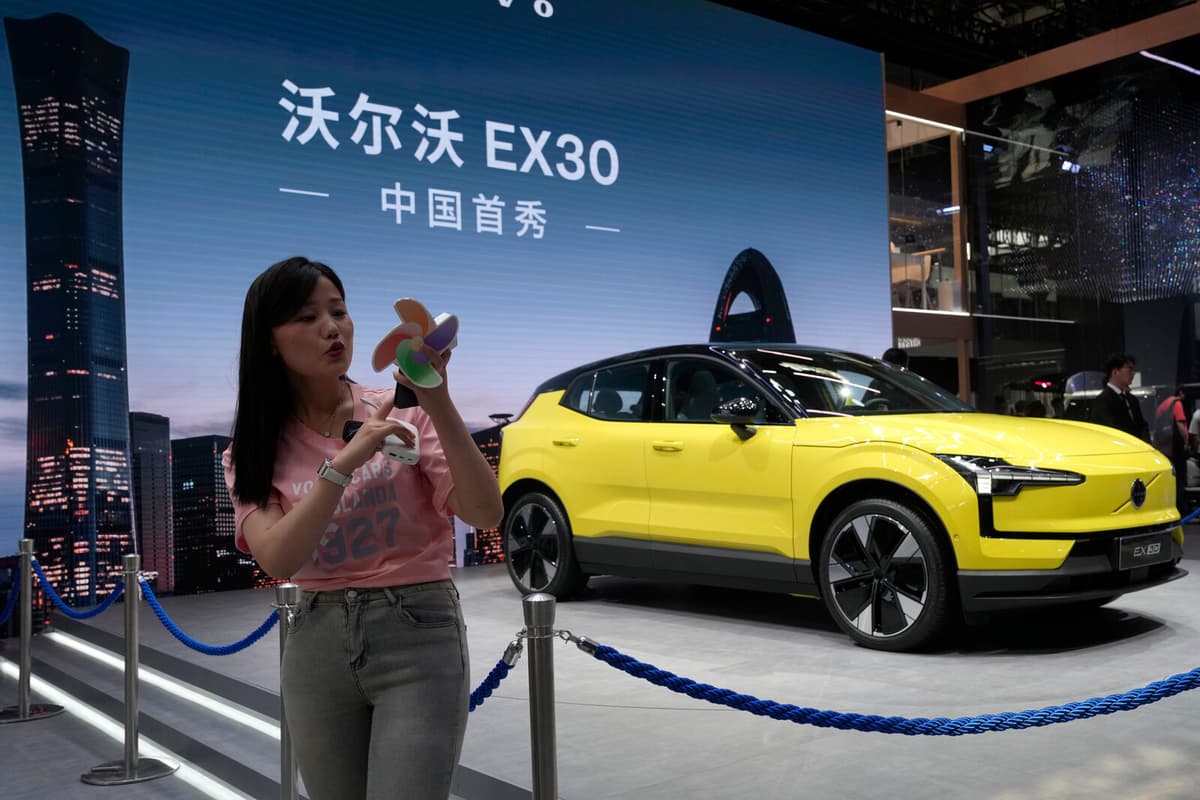According to various diplomatic sources in Brussels, ten EU countries voted in favor of introducing tariffs and only five against in Friday's vote. The remaining twelve chose to abstain.
Among those who voted against were Hungary and Germany, while France and Italy were among those who voted in favor.
Sweden was one of the countries that abstained from voting, despite the government being skeptical of the tariffs. Minister for Foreign Trade Benjamin Dousa (M) refers to hopes that Volvo Cars will get off lightly.
It's not set in stone, it's not clear, but it's something that Sweden has driven very hard, said Dousa to TT before the vote.
We're getting positive signals from the Commission that this could be a special solution.
Trade War?
Germany and other opponents fear that a trade war will break out with China.
"The planned tariffs are the wrong way to go and will not improve the competitiveness of Europe's automotive industry" says Volkswagen in a statement, according to AFP.
Benjamin Dousa points to both advantages and disadvantages.
Sweden has a skeptical attitude towards this type of measure and we are strong free trade advocates. At the same time, the Commission's investigation has shown that China does not follow WTO rules, says the minister.
The EU Commission emphasizes that negotiations continue with China on other ways to resolve the dispute.
We have never wanted to introduce tariffs just for the sake of tariffs. We are open to finding a solution, says Commission spokesman Olof Gill in Brussels.
Introduced in November
The proposal involves tariffs of up to 35.3 percent on imports of electric cars made in China, from November this year – in addition to the existing tariffs of ten percent.
The electric cars made by Volvo Cars in China have previously been said to receive a higher tariff than, for example, Tesla cars made there.
We hope that this will result in price commitments from Volvo's side instead of tariffs. This means in practice that Volvo gets to keep the money instead of it being channeled into the EU, says Dousa.
The requirement for exemption is that one promises not to dump prices. A price commitment means that Volvo agrees with the EU Commission to maintain a certain price. According to Dousa, Volvo is a special case, since the company is now moving production to Europe.
The EU Commission believes that the Chinese state provides state aid to its electric car manufacturers, giving them unfair advantages over European manufacturers. China has protested and hinted that the response could be heavy tariffs on cognac, dairy products, and pork from the EU.
According to the latest proposal, the tariff will be 18.8 percent for Volvo owner Geely, 17 percent for BYD, 35.3 percent for SAIC, 7.8 percent for Tesla, and 20.7 percent or 35.3 percent for other brands – depending on whether they have been cooperative or not.
The tariffs can come into force from the beginning of November.
Both Canada and the USA have recently introduced tariffs of 100 percent on electric cars from China.






